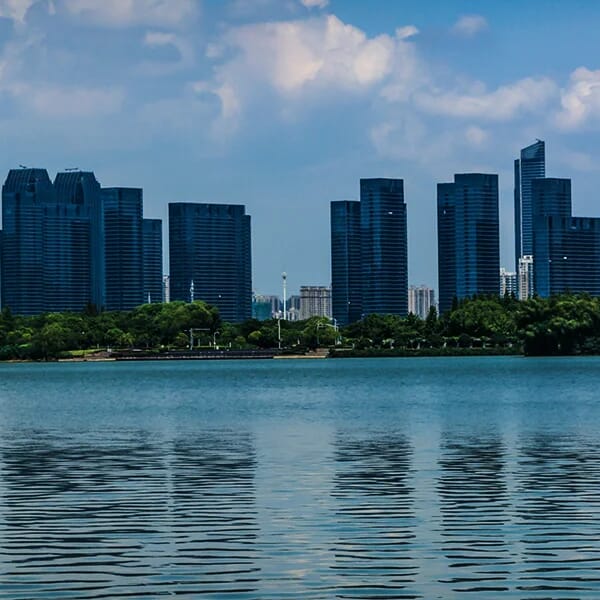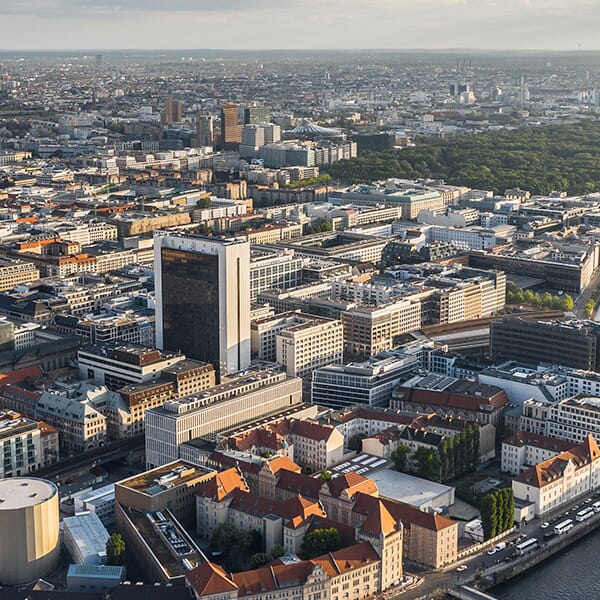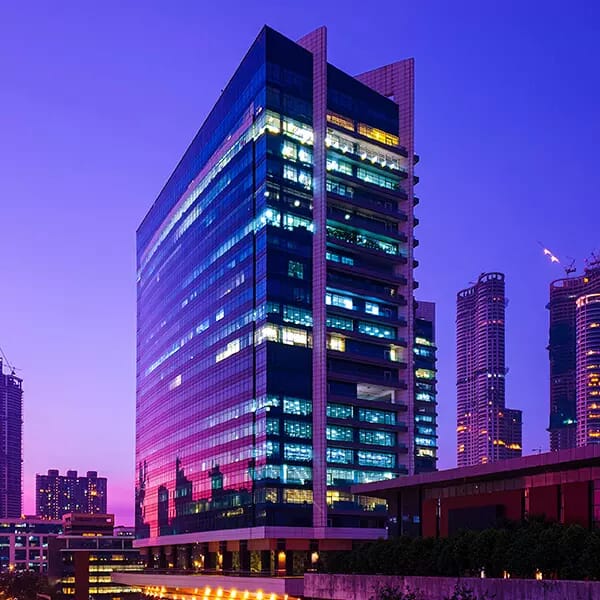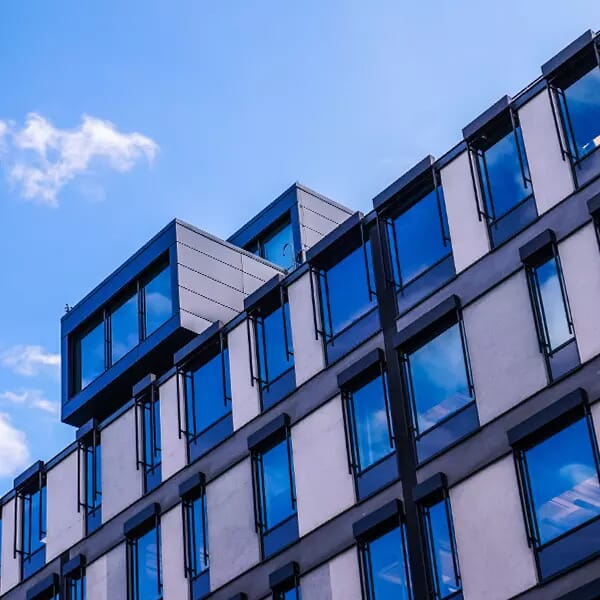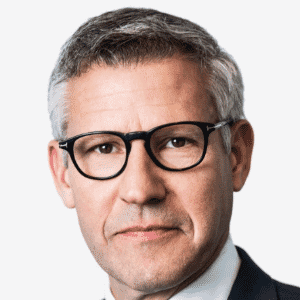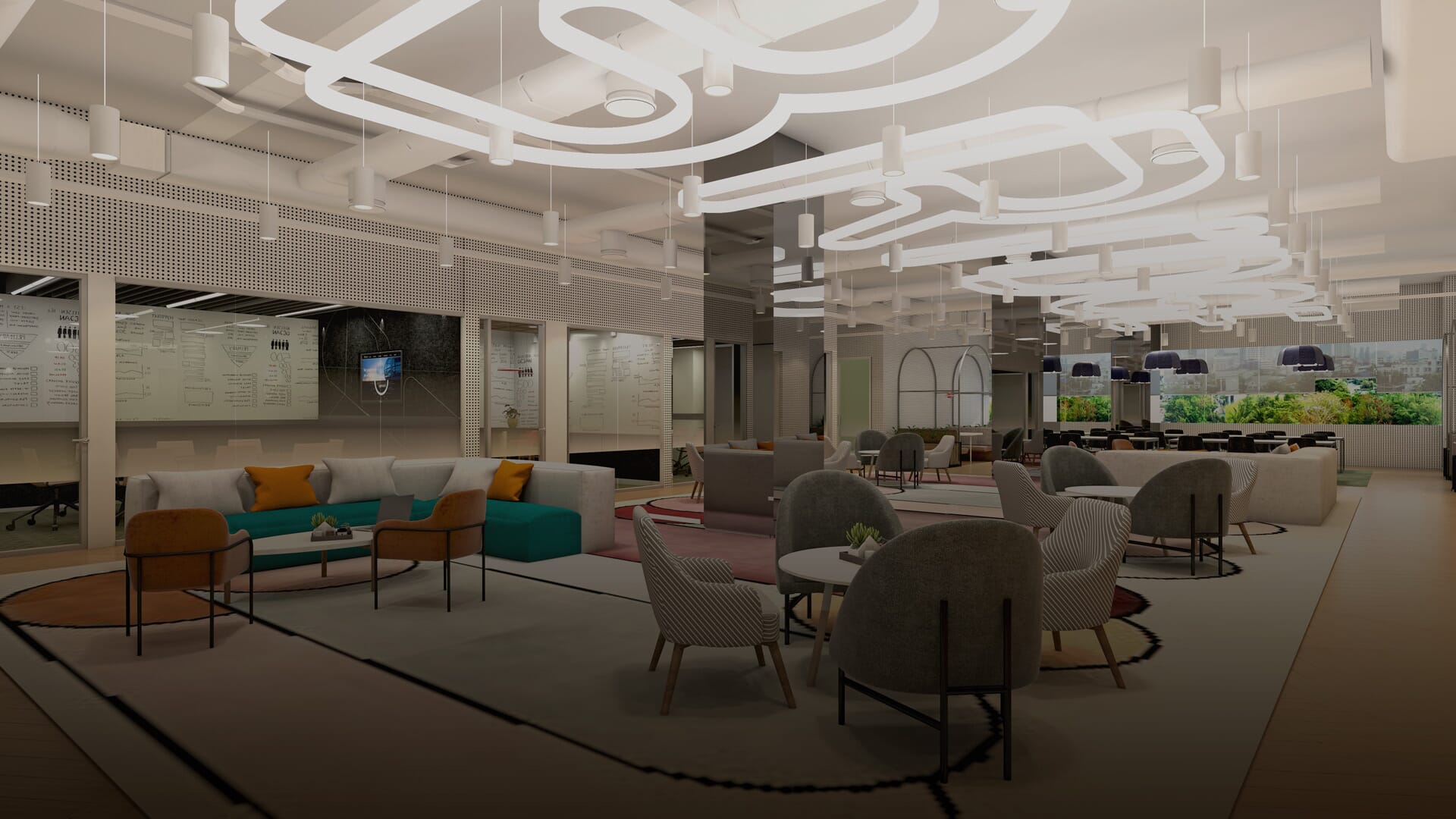 bridge+
bridge+Workspaces India: bridge+ takes tribal approach
With rising demand for co-working in India, one company bursts onto the scene with a new way to bring people together.
June 10, 2019Real Estate
India’s co-working and flexible workspace market may be little more than three years old, but it has already been through a rapid evolution. Starting out as an industry aimed primarily at start-ups, entrepreneurs and SMEs, providers of ‘workspace solutions’ now cater as much to large-scale enterprises as to start-ups. The market, like its customers, has also become increasingly global. The latest example of this exciting trend is the arrival of a new Bangalore-based coworking space called “bridge+”, launched in India by Singapore headquartered real estate developer Ascendas-Singbridge.
bridge+, explains Vinamra Srivastava, CEO of India Operations & Private funds at Ascendas-Singbridge, began in Singapore in 2017 and was originally branded ‘thebridge’. It has since branched out to China and is currently being rechristened as ‘bridge+’ to reflect the fact that, as Srivastava says, “the model has evolved and we are much wider in our scope.”
Srivastava tells a familiar story about the shift in customer base over the last couple of years; “When thebridge began in Singapore, coworking was a new business concept globally. We started by offering more flexibility - flexibility in terms of how and when customers might want to utilise the space. Startups, entrepreneurs and SMEs find it tough to go into established corporate offices, so this product was a great opportunity for them and they were one of the first target segments. But as we expanded, we realised that even large enterprises, our traditional customers, were finding immense use in this flexible working space. So the profile of our customers has shifted towards a fairly even balance between large-scale enterprises versus SMEs, startups and entrepreneurs.”
Building communities / Curating tribes
There are multiple ways in which the coworking concept has evolved, especially for Ascendas-Singbridge. “The business is not just about providing flexibility. For us, it has evolved into a community development platform. That community comprises three types of stakeholders: first, there are the members of the bridge+ itself; second, because the bridge+ is co-located with other assets, wherever we have big parks and big properties, there is a community of existing corporate customers; and the third set of stakeholders are partners from the broader ecosystem, who could be industry associations, universities, government bodies, etc.”
The role of the bridge+, continues Srivastava, is “to provide an opportunity for all these communities to get together, to network together, for brainstorming new ideas and for the latest happenings. What we started doing was to ‘curate tribes’ - we call them ‘tribes’. For example, in Singapore, we started creating tribes on blockchain, sustainable growth and corporate innovation. We started to engage communities on anything to do with those themes, not only providing a physical venue, but also providing an opportunity for a meeting of minds.”
Differentiator in India
The philosophy, to “get like-minded customers together and then use that to create tribes in a broader ecosystem”, guides and underlines every new bridge+, according to Srivastava. In Bangalore, it has yet to be decided what exactly those communities or “tribes” will be. However, says Srivastava, “International Tech Park Bangalore, the park in which we are launching bridge+, already has more than 55,000 people working there. This is an immediate catchment for us, to be able to create communities. And they don’t only have to be an industry vertical - the tribe could also be a horizontal, in terms of say a particular technology, or it could be a particular function area. We will make sure that the whole area around our park is able to contribute towards the communities that we created.”
Srivastava is confident that the bridge+’s community-building approach will differentiate it from the competition in India: “There are lots of lessons to be learnt from Singapore. One big lesson is the importance of creating tribes, which in India so far do not exist. The Singaporean market is very competitive, and one reason we were able to succeed so quickly was our ability to create these communities, and to use them as a community platform rather than just a flexible workspace.”
Roll-out
bridge+’s first facility in India has been established in Bangalore, the next two to three years will see a plan is to roll out more bridge+’s across cities in which Ascendas-Singbridge is already present, including Hyderabad, Mumbai, Pune, Chennai and Gurgaon.
“One difference between bridge+ and our competitors is that we already have a robust portfolio of our own assets, in terms of the parks that we operate in India,” says Srivastava. “Our model is first to use those assets we already own, to launch bridge+. Once we have established the business in India, we are very open to going out to third party assets.”
Besides having its own assets, the bridge+ is aiming to leverage its existing customer base both in Singapore and China. “We are headquartered in Singapore and have a huge customer base there. We are able to leverage this cross-border network - a lot of our customer leads originate in Singapore and China and end up in India.”
Growing competition however does not worry Srivastava, due to the strength of demand in India. “From a demand perspective, co-working is a fairly new business segment and we are only scratching the surface,” he says. “We are very bullish on how demand will pan out for the next few years. With that increasing demand, I think there is enough space and opportunity for some of the top quality providers to co-exist in the market.”
Co-working and flexible workspaces will be discussed in further detail at India GRI 2019 in Mumbai on 18-19 September.
bridge+, explains Vinamra Srivastava, CEO of India Operations & Private funds at Ascendas-Singbridge, began in Singapore in 2017 and was originally branded ‘thebridge’. It has since branched out to China and is currently being rechristened as ‘bridge+’ to reflect the fact that, as Srivastava says, “the model has evolved and we are much wider in our scope.”
Srivastava tells a familiar story about the shift in customer base over the last couple of years; “When thebridge began in Singapore, coworking was a new business concept globally. We started by offering more flexibility - flexibility in terms of how and when customers might want to utilise the space. Startups, entrepreneurs and SMEs find it tough to go into established corporate offices, so this product was a great opportunity for them and they were one of the first target segments. But as we expanded, we realised that even large enterprises, our traditional customers, were finding immense use in this flexible working space. So the profile of our customers has shifted towards a fairly even balance between large-scale enterprises versus SMEs, startups and entrepreneurs.”
Building communities / Curating tribes
There are multiple ways in which the coworking concept has evolved, especially for Ascendas-Singbridge. “The business is not just about providing flexibility. For us, it has evolved into a community development platform. That community comprises three types of stakeholders: first, there are the members of the bridge+ itself; second, because the bridge+ is co-located with other assets, wherever we have big parks and big properties, there is a community of existing corporate customers; and the third set of stakeholders are partners from the broader ecosystem, who could be industry associations, universities, government bodies, etc.”
The role of the bridge+, continues Srivastava, is “to provide an opportunity for all these communities to get together, to network together, for brainstorming new ideas and for the latest happenings. What we started doing was to ‘curate tribes’ - we call them ‘tribes’. For example, in Singapore, we started creating tribes on blockchain, sustainable growth and corporate innovation. We started to engage communities on anything to do with those themes, not only providing a physical venue, but also providing an opportunity for a meeting of minds.”
Differentiator in India
The philosophy, to “get like-minded customers together and then use that to create tribes in a broader ecosystem”, guides and underlines every new bridge+, according to Srivastava. In Bangalore, it has yet to be decided what exactly those communities or “tribes” will be. However, says Srivastava, “International Tech Park Bangalore, the park in which we are launching bridge+, already has more than 55,000 people working there. This is an immediate catchment for us, to be able to create communities. And they don’t only have to be an industry vertical - the tribe could also be a horizontal, in terms of say a particular technology, or it could be a particular function area. We will make sure that the whole area around our park is able to contribute towards the communities that we created.”
Srivastava is confident that the bridge+’s community-building approach will differentiate it from the competition in India: “There are lots of lessons to be learnt from Singapore. One big lesson is the importance of creating tribes, which in India so far do not exist. The Singaporean market is very competitive, and one reason we were able to succeed so quickly was our ability to create these communities, and to use them as a community platform rather than just a flexible workspace.”
Roll-out
bridge+’s first facility in India has been established in Bangalore, the next two to three years will see a plan is to roll out more bridge+’s across cities in which Ascendas-Singbridge is already present, including Hyderabad, Mumbai, Pune, Chennai and Gurgaon.
“One difference between bridge+ and our competitors is that we already have a robust portfolio of our own assets, in terms of the parks that we operate in India,” says Srivastava. “Our model is first to use those assets we already own, to launch bridge+. Once we have established the business in India, we are very open to going out to third party assets.”
Besides having its own assets, the bridge+ is aiming to leverage its existing customer base both in Singapore and China. “We are headquartered in Singapore and have a huge customer base there. We are able to leverage this cross-border network - a lot of our customer leads originate in Singapore and China and end up in India.”
Growing competition however does not worry Srivastava, due to the strength of demand in India. “From a demand perspective, co-working is a fairly new business segment and we are only scratching the surface,” he says. “We are very bullish on how demand will pan out for the next few years. With that increasing demand, I think there is enough space and opportunity for some of the top quality providers to co-exist in the market.”
Co-working and flexible workspaces will be discussed in further detail at India GRI 2019 in Mumbai on 18-19 September.
